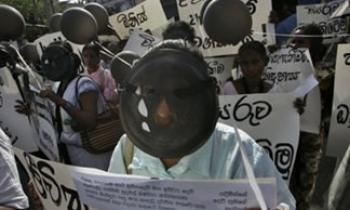For anyone observing the Indian media scene these are strange and contradictory times. On the one hand, there appears to be a boom underway. Two new 24-hour news channels are being launched in addition to the several already on air. Three new English language dailies will soon be vying for the attention of the Mumbaikar. Media houses are allocating massive budgets for publicity and market research. Salaries for editorial staff have soared. Old publications are revamping themselves and turf wars are on in earnest. The media is suddenly big business.
It is ironic and even puzzling that at a time like this there is more concern than ever about ethical standards in the media. Puzzling because in the past it was usually the paper with the hand-to-mouth existence that cut corners; the impecunious editor-publisher who went around cutting unsavoury deals with advertisers; the desperate journo who tried to curry favour with politicians and sensationalised stories. Yet today, even amidst such riches and euphoria as we are witnessing, these practices are apparently rife. And there is, as a consequence, a deep disillusionment among those in the media, with journalism as a profession.
At a seminar on media ethics at a Mumbai college last week, for instance, panelists and students of mass communication expressed dismay at the growing trivialisation of the news media and developments such as sting operations. The students were particularly anxious about the ethical compromises they feared they would have to make as journalists. The protagonist of the film, Page Three, a young girl who is forced to cover parties in preference to serious issues, and who loses her job exposing the rich was an example evoked to illustrate the potential dangers of their future calling. In fact, so gloomy was the prognosis that one even asked if journalism was about to die.
What does one make of this schizophrenic divide? Why should a growth of resources lead to a perceptible decline in the quality of practice?
Looking through some old files I happened to chance upon an interview I had done with Ian Jack, one of Britain’s most respected journalists, now editor of Granta, that seemed to offer some perspective on the subject. Claimed Jack: "I think very good journalism which changes things – journalism at its best, in fact – has to have a note of outrage in it."
Such campaigning journalism though, he believed, had its roots in a different kind of society, namely a "Westernised, liberalised society in which things like corruption, cruelty and massive inequality stand out. In a society (India) in which massive inequality and corruption do exist in an everyday way," he felt, "it’s difficult for a newspaper to campaign against it". A little later in the interview, however, he confessed that even in Britain the press had lost its power to provoke reaction. This he ascribed to social factors. "There is a kind of tolerance now, a kind of pragmatism... we have to hope and not be outraged."
Priorities had altered he maintained. A prime minister’s relatives could misuse her position to secure contracts without any result while a minister who got his secretary pregnant would have to resign.
Judging by this assessment, whether one takes India to be an underdeveloped country or an economically mobile society, the media seems fated for greater visibility and a decline in inspirational value. On the other hand, this particular interview, though relevant to India today, was conducted 20 years ago. Indeed, there is something rather anachronistic about the present debate about the state of the Indian media. Television and print though hugely significant are really innovations of the past.
A few years ago I asked an editor at the New York Times about his concept of a newspaper of the future and he said he saw an interactive paper tailored to suit the net generation. A CNN discussion recently focused on blogging, which it called the Fifth Estate’. Participants waxed eloquent on the merits of blogging: the immediacy, the exposure to a multiplicity of opinions, the ability of blogs to unmask the mysterious processes of newsmaking, and so on and so forth. It was pointed out that increasingly people were accessing the net through means other than their PCs such as mobile phones and it was likely that tools would soon be developed to suit these new media.
We are on the cusp of a communications revolution. Given the high costs and epic scales involved in running today’s newspaper and television channels, it seems unlikely that any except the brave few will be willing to take risks, to shake the status quo. Perhaps, then, we need to alter our expectations from the traditional media and expect in the coming years the teeth to lie elsewhere.









